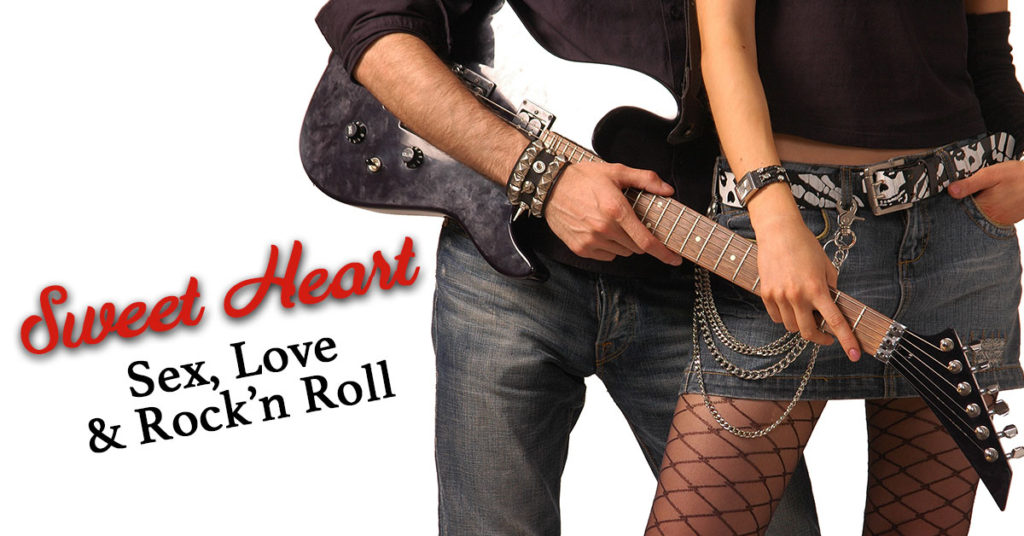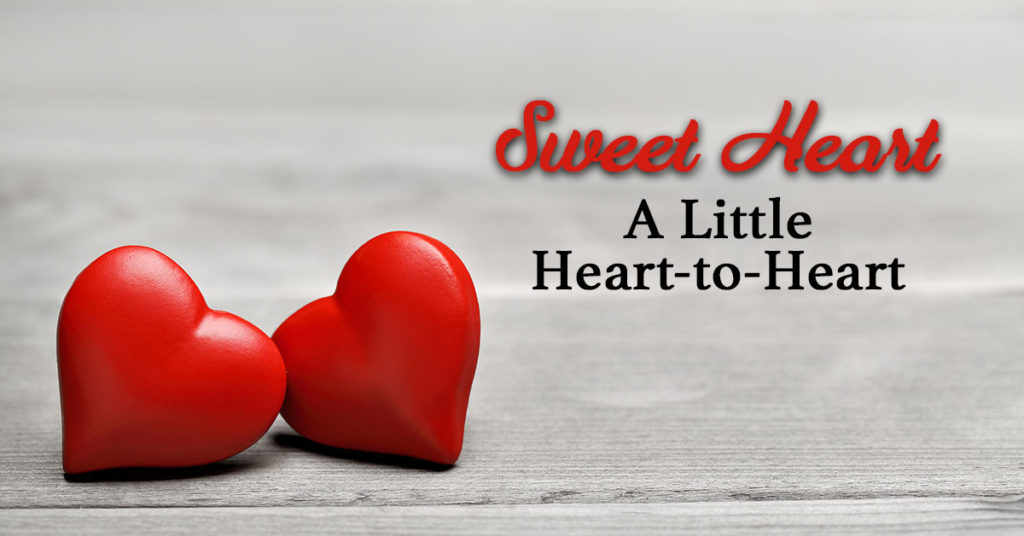Sweet Heart – Sex, Love, and Rock and Roll

How we long to hear those three little words… “sex is great”. (You were thinking maybe “I love you”?) Hey, they both work. And we’ve been working on them both before man started walking upright. Love and sex both come from the heart (well, actually, sometimes a bit lower). It’s a bit of scientific foreplay that the act of loving actually improves your heart health. Sex figures into that, too. Any way you look at it, it rocks.
Cupid’s Not Stupid
Remember when you were in kindergarten and Mrs. Whoever-She-Was had the class make paper Valentines? For most of us, it was pretty fun. Mostly we made them for our Moms. (Big hit.) As we start to develop sexually, Mom was replaced in the picture with the amazing Blond in Chem (male, or female). Getting crushy gives you butterflies in your stomach and a racing heartbeat. As an adult, those feelings intensify, making your brain release hormones such as dopamine, adrenaline, and norepinephrine, which make your heart beat faster and stronger. Being hit by love’s arrow is a heart health bullseye.
Lust’s a Must
Lust is a hormone-driven phase of attraction that stimulates desire…alright…, “the hots”. Our bodies tell us we “just gotta get it.” When broken down, there are actually millions of reasons to have sex. (Oh, what luck!) Here are just a few:
- Sex relieves tress
- Sex lowers your blood pressure
- Sex helps you lose weight
- Sex helps you sleep
- Sex boosts immunity
- Sex burns calories
- Sex boosts self-esteem
- Sex improves intimacy
- Sex strengthens pelvic floor muscles
- Sex reduces the risk of prostate cancer
- Sex can stop heart attacks
A recent study showed that men who had sex at least twice a week had a 45 percent drop in the rate of heart attacks, even when factors like age, weight, and cholesterol levels were taken into account. If that isn’t a big-time reason to hop into the sack, what is?
The Sweetest Taboo
Sade, made this thought a big hit when they recorded The Sweetest Taboo, in 1985. Consider one of the lyrics, “And I never felt this hot before.” Sex is identified with reproduction and power in our youth-oriented culture. So, older people “wanting it” and “doing it”, is appalling to them. Horny old broads, dirty old men. Sorry, guys, there is no age limit on sexuality. According to a survey by the AARP (the organization formerly known as the American Association of Retired Persons), in 60- to 70-year-olds, 46 percent of men and 38 percent of women have sex at least once a week, as did 34 percent of those 70 or older. (Shocker alert!) A Duke University study shows that some 20 percent of people over 65 have sex lives that are better than ever before. Which keeps their hearts beating more. Ah…sweet.
Birds, Bees, and Hormones
Low libido is just one of the endless list of symptoms that could be the result of an imbalance in your hormones. (No Valentine cards to cover that fact.) That’s where bioidentical hormones come in. They are completely identical to the hormones in our bodies. They’re not chemically altered like synthetic hormones which could alter your sex drive, driving it right into reverse. That’s where Dr. Stephan A. Goldstein, M.D, F.A.C.S at Denver Hormone Health comes in. With years of experience and expertise in successfully treating hormone imbalances, he knows just how to get your sex engine roaring again. With simple tests, he gets a clear picture of what’s going on. Which allows him to create a treatment plan uniquely tailored to your needs. So, call to make an appointment to see Dr. Goldstein now.
He’ll put you totally in the mood.


